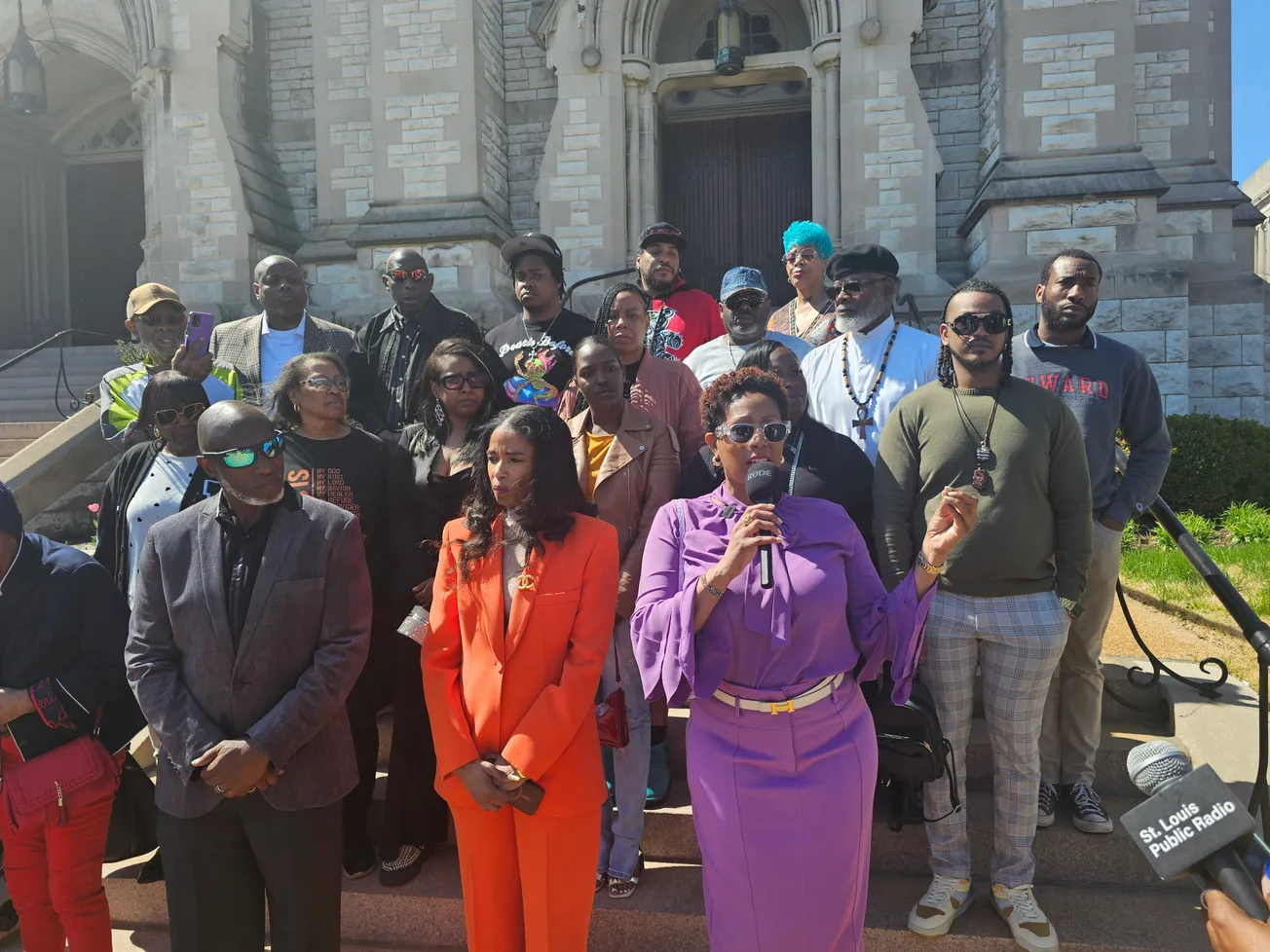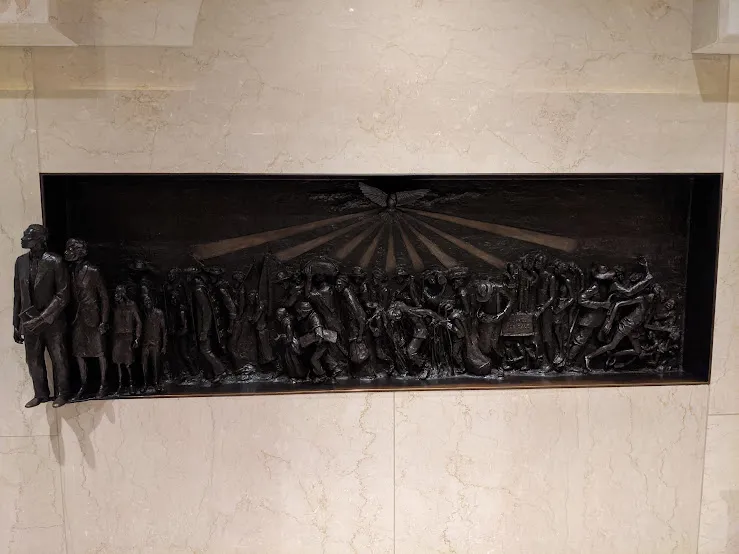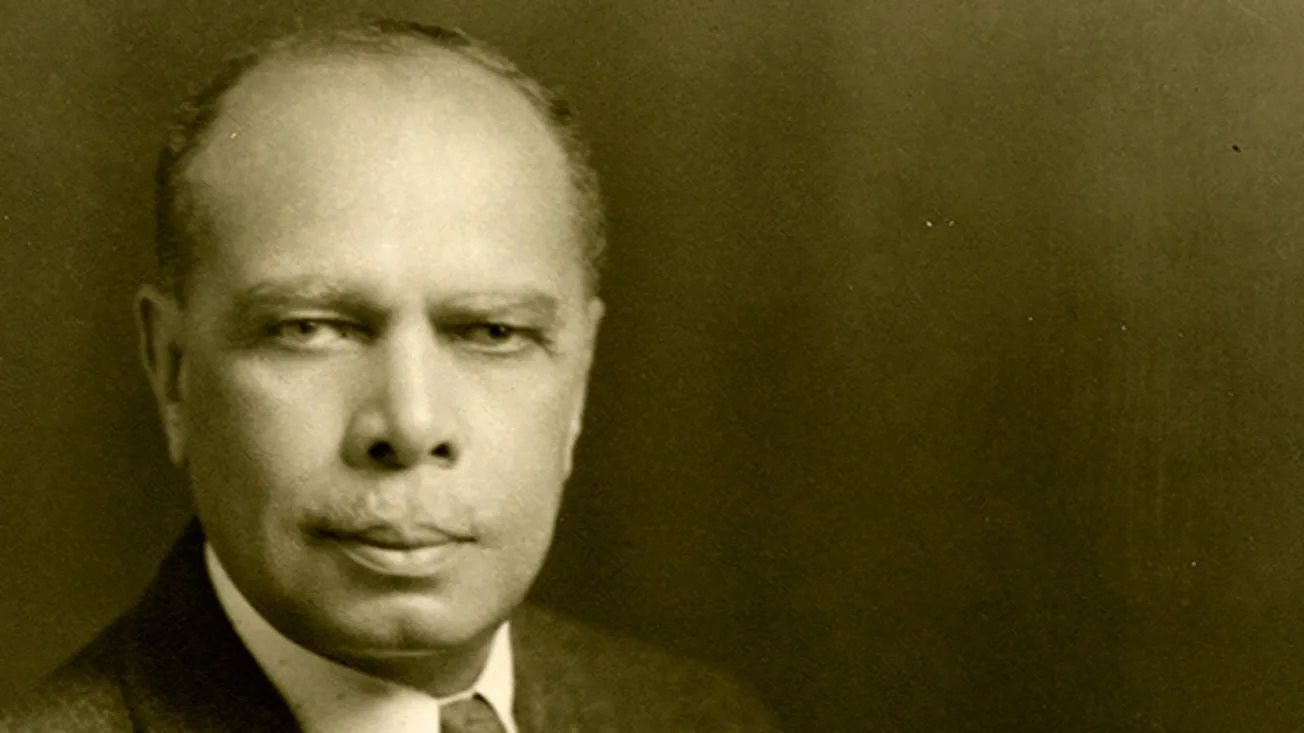Today, February 8, the Church celebrates the feast of St. Josephine Bakhita, the first and only Black Catholic canonized thus far in the 21st century. It has also been the International Day of Prayer and Awareness Against Human Trafficking since 2015, when it was dedicated as such by Pope Francis.
A native of Sudan, Bakhita is best known for having been sold into slavery as a young girl by Arab slave traders before eventually being freed and becoming a religious sister in the Canossian order. She had first encountered the congregation in Italy during the final years of her enslavement.
Given that she was for many years an enslaved African, like the ancestors of many millions of Americans, it perhaps comes as a twist to know that Bakhita died in 1947—more than a century after most countries abolished the slave trade.
There are an estimated 50 million people living in modern slavery today, according to the latest estimates from international agencies. As such, there are more enslaved persons now than at any known point in human history, including during the combined Transatlantic, Arab, and other slave trades of old.
After her canonization by Pope John Paul II in 2000, Bakhita was named the patron of all survivors of human trafficking—also referred to as “modern slavery,” a term referring to the persistent enslavement of men, women, and children in certain parts of the world, including here in the United States.
Indeed, one should not think that the horror of Americans—and specifically African Americans—trapped in slavery ended in 1863 with the Emancipation Proclamation or at any point thereafter. They should know instead that, even with all the advancements of modern society, jurisprudence, and law enforcement, that ethnic group is by many counts still the most likely to be trafficked overall.
Even setting aside the fact that the 13th Amendment of the U.S. Constitution fully allows for slavery as punishment for a crime, the reality of kidnapping and forced labor—usually sexual in nature—remains a constant threat for Black people in the United States.
In 2018, the Global Slavery Index estimated that more than 400,000 people were living in conditions of modern slavery in America, amounting to 1.3 out of every one thousand people in the country.
In 2021 alone, the National Human Trafficking Hotline received more than 10,000 reports concerning potential victims of trafficking in the United States, involving 16,000+ potential victims. Nearly 40% involved Black women and girls.
Among arrests for underage prostitution in the United States, Black youth comprise well over half—surpassing all other racial or ethnic groups, according to a 2020 report from the Congressional Black Caucus Foundation. That study also revealed that traffickers admitted to targeting Black women because they felt they would face fewer legal consequences compared to trafficking their White counterparts.

To say that this is a growing issue is true, but almost beside the point. It has never gotten the attention it deserves, and only recently has the connection between human trafficking and missing Black Americans been remotely situated in its proper place in the national consciousness.
The 2021 HBO docuseries “Black and Missing” highlighted the Black and Missing Foundation, a nonprofit founded in 2008 to underscore the disparity in how missing person cases are treated when a potential victim is Black.
“In building the Black and Missing Foundation, we learned early on that awareness, exposure of an issue is key to ignite change and a call to action,” said founders Natalie Wilson and Derrica Wilson in a statement last week announcing plans for a media organization supporting their work.
“To accomplish that, we must create and take ownership of platforms that allow the voiceless, the marginalized in our communities to be heard.”
Blockbuster global happenings like the World Cup are often cited as locales where human trafficking is rampant, and authorities are often ill-equipped to handle the size and scope of the issue.
Similar events stateside are also rife with trafficking concerns, including the Super Bowl, which will take place this weekend in Glendale, Arizona. In the runup to last year’s big game, authorities arrested more than 30 traffickers and rescued nearly 75 victims—including several children—during a weeklong sting.
“There are such things as circuit girls, who are transported from city to city sometimes in order to meet expected demand,” said Arizona State University professor Samantha Calvin in an interview last week.
“We’re not saying the Super Bowl in and of itself is driving trafficking, but more people, more money and more power moving into a city. You’re going to have increases in sex buying.”
Shared Hope International, which publishes data grading states on their protection of youth trafficking victims in America, revealed in their latest report that the states with the highest populations of African Americans received some of the lowest scores. (Various other states, including Arizona, received an “F” rating.)

Only time will tell if stateside politicians and authorities will finally act to end slavery once and for all. The descendants of the same community the American state itself once conspired to enslave en masse are now at risk more than any other to fall into hellish hands once again.
Today, in a video message for the feast of St. Bakhita and the global day of prayer, Pope Francis called modern slavery a “shameful scourge” just days after returning from a humanitarian trip to South Sudan.
“Human trafficking disfigures dignity. Exploitation and subjugation limit freedom and turn people into objects to use and discard. And the system of trafficking profits from the injustice and wickedness that oblige millions of people to live in conditions of vulnerability.”
In her last days, St. Bakhita herself was said to have been drawn back in her mind to her days in slavery, at one point uttering: “The chains are too tight. Loosen them a little, please!”
On this day, it seems that we her kinspeople ask the same.
St. Josephine Bakhita, holy sister of all who live in bondage, pray for us.
Nate Tinner-Williams is co-founder and editor of Black Catholic Messenger and a seminarian with the Josephites.










